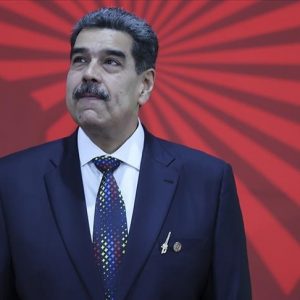Pakistani premier seeks action on Palestine and Kashmir issue at UNGA
Pakistani prime minister highlighted growing global concern over Islamophobia, and expressed concern over the Hindu supremacist agenda in India, subjugating 200 million Muslims and obliterating Islamic heritage
Muslim Network TV
NEW YORK (MNTV) – Pakistani Prime Shahbaz Sharif on Friday called for urgent global action to address the escalating humanitarian crises in Palestine and Jammu and Kashmir.
Addressing the 79th session of the United Nations General Assembly, he emphasized the need for comprehensive reform of the international financial system.
He began his speech by congratulating the newly elected President of the 79th session of the UNGA and expressing gratitude to Ambassador Dennis Francis for his stewardship of the 78th session.
He reiterated Pakistan’s unwavering commitment to the principles of the UN Charter, a pledge made by the country’s founding father, Quaid-e-Azam Muhammad Ali Jinnah, in 1947.
Focusing on the grave situation in Gaza, the Prime Minister condemned Israel’s ongoing military aggression, describing it as a “genocidal war” against the Palestinian people.
He decried the systematic killing of civilians, including women and children, and accused Israel of committing atrocities that have stained the conscience of humanity.
He urged the international community to break its silence and take decisive action to end the bloodshed.
“Can we, as human beings, remain silent while children lie buried under the rubble of their shattered homes? This is not just a conflict; this is a systematic slaughter of innocent people and an assault on the very essence of human dignity,” he stated.
He called for a durable peace through the Two-State solution, advocating for a viable, secure, and sovereign State of Palestine based on pre-1967 borders with Al-Quds Al-Sharif as its eternal capital.
He also demanded the immediate admission of Palestine as a full member of the United Nations to advance these goals.
Turning his attention to the situation in Jammu and Kashmir, Sharif highlighted the plight of the Kashmiri people under Indian occupation, comparing their struggle for self-determination to that of the Palestinian people.
He condemned India’s unilateral actions since August 5, 2019, which he described as an attempt to impose a “Final Solution” for Jammu and Kashmir.
He accused India of using oppressive tactics, including a massive military presence, curfews, and extra-judicial killings, to suppress the Kashmiri people.
“Day in and day out, nine hundred thousand Indian troops terrorize the people of occupied Jammu and Kashmir with draconian measures. India’s policy of brutal coercion in occupied Kashmir ensures that Burhan Wani’s legacy continues to inspire the struggle and sacrifices of millions of Kashmiris,” he declared.
The Pakistani prime minister warned that India’s expansion of its military capabilities poses a direct threat to Pakistan, especially given its war doctrines that envisage a surprise attack under a “limited war under the nuclear overhang.”
He reaffirmed Pakistan’s commitment to responding decisively to any aggression from India.
The Prime Minister also addressed the issue of climate change, recalling the catastrophic floods that devastated Pakistan two years ago, causing $30 billion in damages.
He highlighted the injustice faced by countries like Pakistan, which contribute less than 1% of global carbon emissions but suffer disproportionately from climate impacts. He called for urgent fulfillment of international commitments on climate finance, including a new annual goal exceeding $100 billion.
“The polluter must pay,” he insisted, urging the international community to support the achievement of Sustainable Development Goals (SDGs) and climate goals. He criticized the current global financial system, describing it as “morally bankrupt” and called for its reform to promote development and global equity.
Addressing the issue of terrorism, he reaffirmed Pakistan’s commitment to combating all forms of terrorism.
He condemned the resurgence of externally financed and sponsored terrorism in Pakistan, particularly by the Tehreek-e-Taliban Pakistan (TTP) and its associates. He announced the launch of a comprehensive national effort, “Azm-e-Istehkam” (Resolve to Promote Stability), to eliminate this threat.
Sharif also expressed Pakistan’s desire for the earliest possible normalization of the situation in Afghanistan. He joined the UN’s appeal for $3 billion in humanitarian assistance for millions of suffering Afghans and urged the Afghan Inteim Government to respect human rights, including those of women and girls, and to take effective action against terrorist groups operating within Afghanistan.
The Pakistani prime minister also highlighted the growing global concern over Islamophobia, which he said is manifested in frequent desecrations of the Holy Quran, attacks on mosques, and acts of discrimination and violence against Muslims.
He expressed particular concern over the Hindu supremacist agenda in India, which, he claimed, seeks the subjugation of 200 million Muslims and the obliteration of India’s Islamic heritage.
He called on the Organization of Islamic Cooperation (OIC) to work with the UN Secretary-General to implement a plan of action to combat this scourge.
Sharif expressed solidarity with the nations of Africa, pledging continued cooperation in countering terrorism and resolving regional conflicts, including through UN peacekeeping efforts.
He also called for an immediate end to the conflict in Ukraine and its peaceful resolution in accordance with the UN Charter and international agreements.
In his concluding remarks, the Prime Minister urged the global community to remember that the weak are not voiceless, the oppressed should not lose hope, and that justice and equality must be upheld in every part of the world.
His impassioned plea was a call to action for a more just and equitable world order, respecting the dignity and rights of all people.







